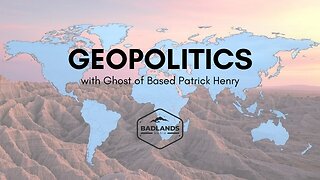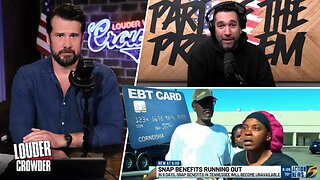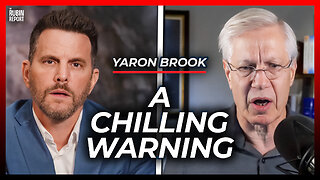Premium Only Content

Unveiling the Secrets of the UV 5R: What No One Else Will Share! #preparation #comunicacion
In this video, I'm unveiling the secrets of the UV 5R! This powerful transceiver is perfect for anyone looking for an easy way to get started with ham radio, and I'll show you how to make the most of its capabilities.
Whether you're a beginner or a veteran ham radio operator, this video is for you! I'll share with you some of the secrets of the UV 5R, including its important preparation steps and tips for effective communication. Don't miss out – watch now to learn the hidden secrets of the UV 5R!
uv 5r secrets no one makes clear, just why is it so popular
The Baofeng UV-5R is a type of dual-band handheld transceiver (also known as a two-way radio) that is often used by amateur radio enthusiasts, emergency services, and other groups. Its legality for use depends on the regulations and licensing requirements of the country in which it is used.
In many countries, including the United States, the Baofeng UV-5R and similar radios fall under the category of Part 90 radios, which are subject to regulations by the Federal Communications Commission (FCC). To legally use such radios, you typically need an appropriate FCC license, such as a General Mobile Radio Service (GMRS) or Amateur Radio (Ham) license. The specific frequency ranges and power levels you're allowed to use will vary based on the license you hold.
In the past, there have been concerns about the Baofeng UV-5R's compliance with FCC regulations, particularly regarding its ability to transmit on frequencies outside of the intended ranges and its potential to cause interference with licensed services. Distributors and manufacturers have sometimes been required to adjust the radios' firmware or limit their capabilities to ensure compliance with regulations.
It's important to note that regulations can change over time, and they vary from country to country. If you own or plan to use a Baofeng UV-5R or a similar radio, I recommend checking with the relevant regulatory authority in your country (such as the FCC in the U.S.) to ensure that you understand the licensing requirements and permitted uses for these radios in your jurisdiction. It's always best to comply with local regulations to avoid any legal issues.
-
 0:50
0:50
Doggorunning
1 year agoThese eyeglasses would save your head
131 -
 LIVE
LIVE
Badlands Media
11 hours agoGeopolitics with Ghost Ep. 52 - October 28, 2025
802 watching -
 1:07:04
1:07:04
Timcast
2 hours agoFood Stamps ENDING, Riots Feared, National Guard Says DEFY Trump's ORDERS
115K174 -
 2:03:13
2:03:13
Steven Crowder
5 hours agoDave Smith: Discussing Trump, Israel, & America First
316K380 -
 49:56
49:56
The Rubin Report
4 hours agoA Chilling Warning for America & Why Trump’s Tariffs Have Backfired | Yaron Brook
29.8K28 -
 17:36
17:36
Bearing
6 hours agoHARD-ASS Police Boss GOES TO WAR With VIOLENT LEFTISTS 🚨🚔
3.38K28 -
 DVR
DVR
TheAlecLaceShow
2 hours agoSNAP Benefits to Expire | Mamdani the Real 9/11 Victim | Guest: Leland Vittert | The Alec Lace Show
2.45K -
 LIVE
LIVE
LFA TV
17 hours agoLIVE & BREAKING NEWS! | TUESDAY 10/28/25
2,208 watching -
 1:34:42
1:34:42
The Mel K Show
3 hours agoMORNINGS WITH MEL K -Restoring National Sovereignty After Decades of Global Deception - 10-28-25
20.2K2 -
 1:40:48
1:40:48
The Shannon Joy Show
3 hours agoSJ Show 10/28 - Idiocracy 2025! Are Candace Owens & Nick Fuentes Government Agent Provocateurs? Because The Political Soap Opera Is Getting Kinda Stupid
21.3K10